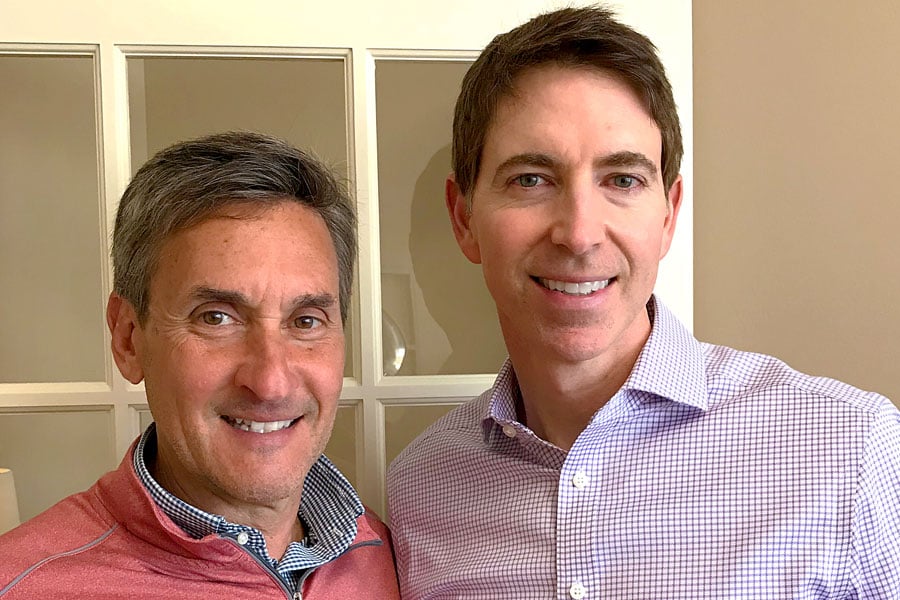In a financial planning industry
constantly chastised for not taking
succession planning seriously enough, Michael Chasnoff might be considered an anomaly: He's 12 years into a 22-year succession plan.
Mr. Chasnoff, founder and chief executive officer of
Truepoint Wealth Counsel in Cincinnati, Ohio, has been gradually selling ownership in his firm to senior-level employees since 2007, with the goal of being retired and free of ownership by 2029, when he turns 70.
"We know that it's very uncommon among RIA firms to see such a successful and vibrant succession plan," he said. "Most firms don't take it seriously enough and end up having to sell to third parties."
Truepoint, which was founded in 1990 and manages $3 billion in client assets, is deliberately taking the long road to succession by adopting a strategy that allows employees to gradually buy out the owner.
After 12 years of selling between 3% and 5% of the firm annually to qualified employees, Mr. Chasnoff now owns about 48% of Truepoint.
The succession model was copied from similar ownership transfers sometimes used by accounting and law firms. It involves a formal process to become eligible to buy shares in the company.
At Truepoint, unlike some other RIAs, the ownership transfer is not limited to financial advisers.
"We have owners who are operations specialists, human resources and marketing folks, as well as wealth managers," Mr. Chasnoff said.
There are currently 18 Truepoint shareholders, including Mr. Chasnoff, and that number could more than double over the next 10 years as more of the firm's 67 employees become eligible to buy shares, which are now hovering between $175,000 and $200,000 each.
Eligibility to buy shares requires reaching a senior management level and then being nominated by firm president Steve Condon.
Mr. Condon, the second-largest shareholder with a 16% ownership stake, said the eligibility process is constantly evolving.
"Part of my function is to evaluate senior managers and determine who should be eligible," he said. "Today there are nine senior managers who are not yet shareholders, and every shareholder of the firm will be asked their opinions of those nine employees, but ultimately the decision will come down to myself and Michael."
Once their eligibility is established, employees buy shares of the firm using a combination of their own money and financing provided by a lender that is working with Truepoint.
The cost of buying the shares is also reduced over time by the appreciation in the value of the shares, which is used like a dividend to pay down the loan.
"If we're growing at an assumed rate of growth of 10% to 12% per year, the loan should be paid off in about six years," Mr. Chasnoff said.
Because of the cap on the number of shares sold annually, newly eligible employees are given first dibs on buying shares ahead of existing shareholders. "The priority is to reserve at least one share for any new shareholder because basically we are oversubscribed in terms of demand," Mr. Chasnoff said.
The current demand for shares is so high that existing shareholders are now only allowed by buy shares every other year.
While eligible employees are not required to buy shares of the company, Mr. Chasnoff said nobody has turned the offer down.
"We let the senior members know they are not required or expected to buy shares," he said. "It doesn't make them any less of a teammate if they elect to not buy shares."
In the event a shareholder wants to sell, which happened once for financial hardship reasons, Mr. Chasnoff has the first right to buy the shares, followed by the firm, followed by any existing shareholders.
Mr. Condon, 43 years old and next in line to become CEO when Mr. Chasnoff retires, said the succession plan is a success for reasons well beyond the transitioning of ownership.
"One of the inspirations behind it is what we see happening all around us in our industry," he said. "Firms are losing some of their most valuable future leaders because of a lack of opportunity, and founders are forced to solely look externally for buyers because the time and money don't exist internally for employees to buy out founders."
Ultimately, he added, the
succession plan is a reward-and-retention strategy.
"Attracting and retaining talent is important, but at the end of day it's about clients, and they want to know that the individuals they're working with will remain with the firm and that the firm has a bright and long-term future," Mr. Condon said. "We have clients come to us from bank and brokerage firms, where there has been so much turnover by teams leaving. We are providing our clients stability."
(More: Succession plan success story)







